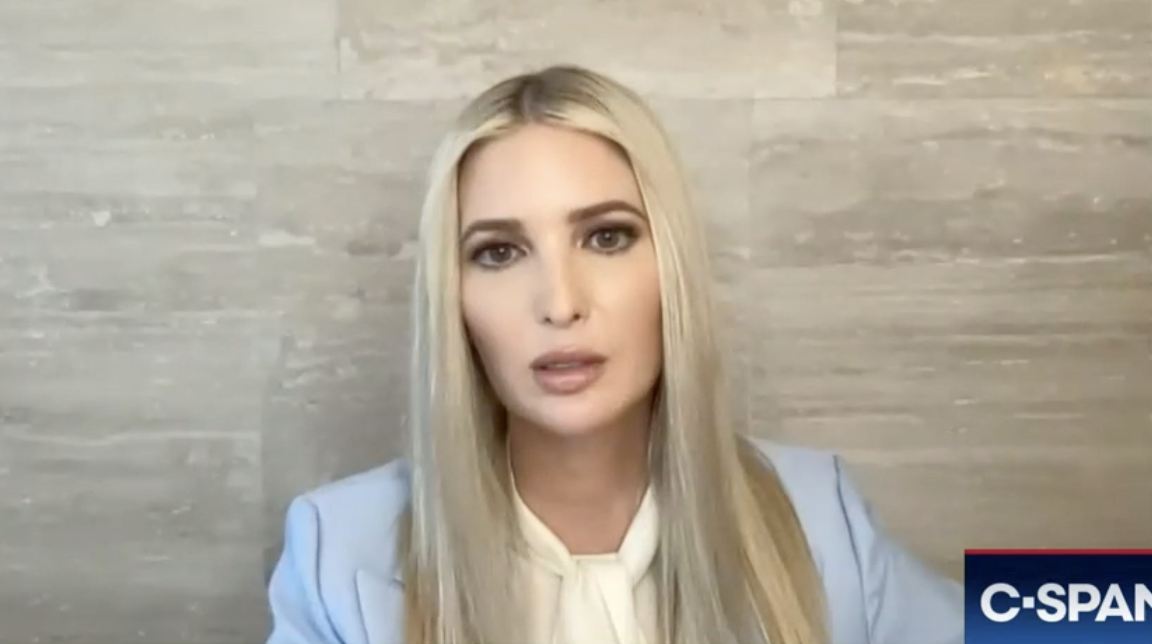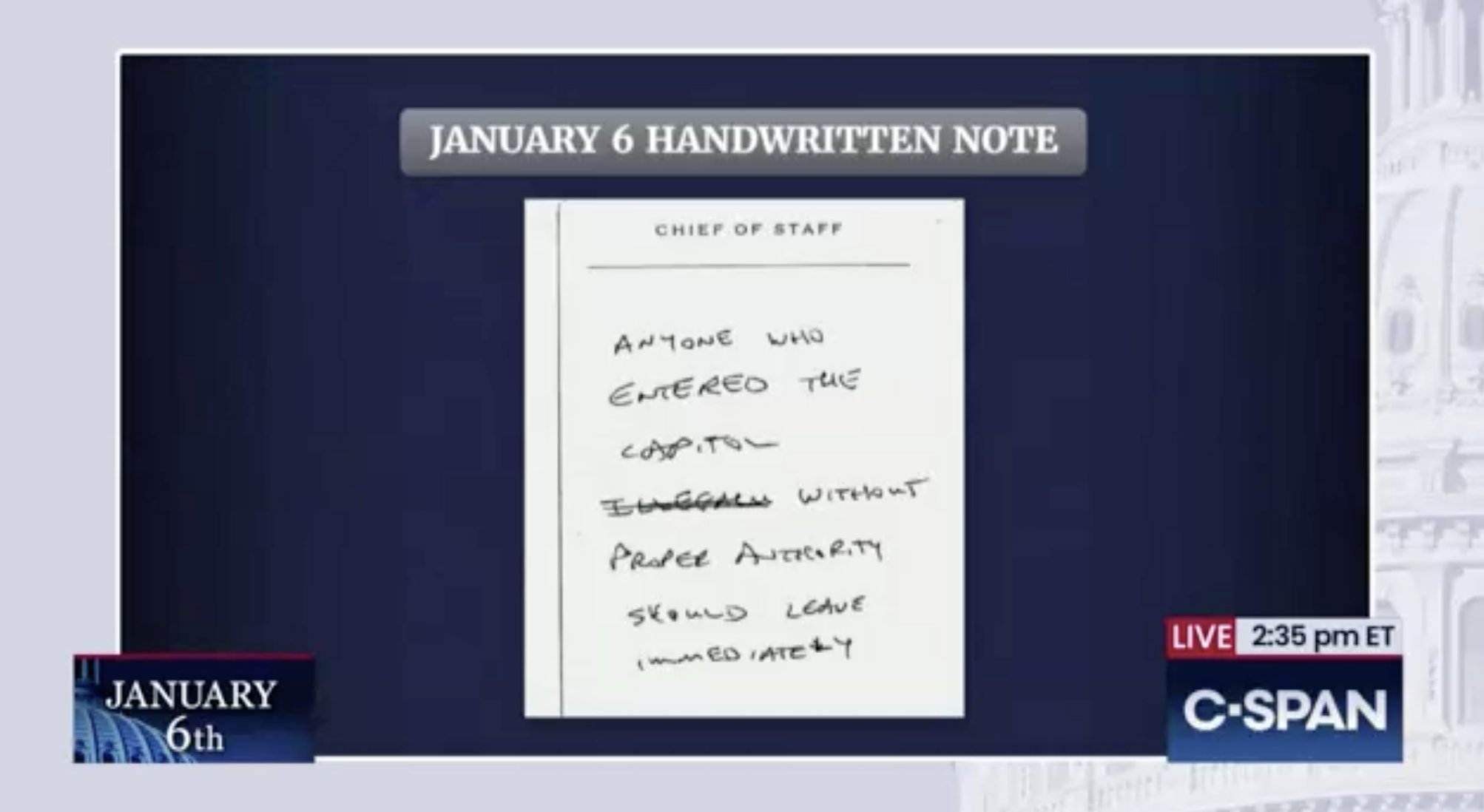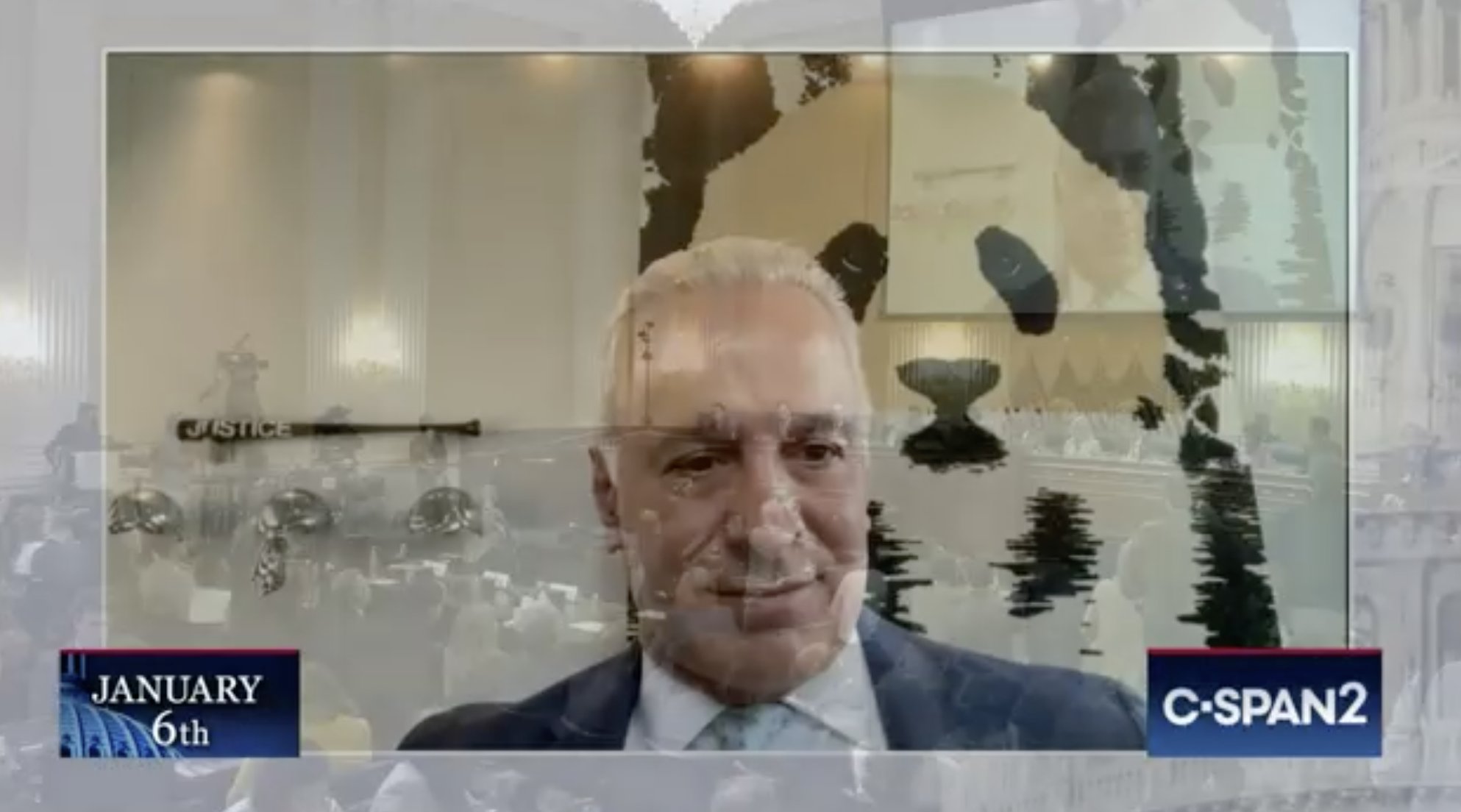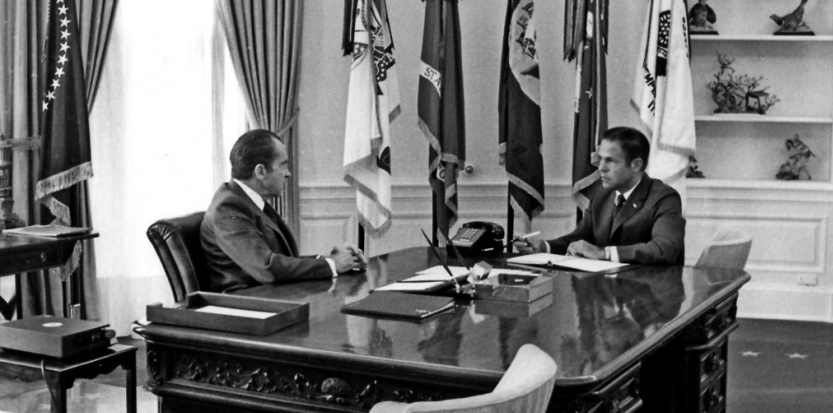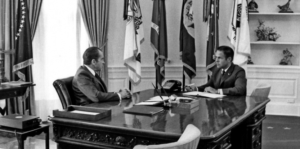How Holes in Ivanka’s Testimony Could Help Make an Obstruction Case against Her Father
When Ivanka Trump was first invited to testify to the January 6 Committee, at least as she tells it, her father encouraged her to testify.
I-after the letter was made public inviting me to attend, I was actually traveling with my children at the time. So I was I was not — I was not in Florida. But I remember him saying something in a subsequent conversation to the effect of, “Great, you should do it,” or something something like that. It was sort of very casual.
Because I told him immediately upon receiving it, I indicated my willingness to participate in these hearings and be as forthright as possible, and he didn’t discourage that in any way.
Her testimony was pretty helpful to him. She had no recall of most damning details of his role in a coup attempt (the record shows that, with the exception of a speech in Georgia on January 4, of which she also claimed to have no recall, Ivanka wasn’t closely involved in the Big Lie). She claimed to “perceive” that he was shocked about the attack on the Capitol, though she could provide no explanation for why she concluded that. And she affirmatively claimed that his failure to respond to the attack on the Capitol was instead a strong response.
Any testimony Ivanka gives to a grand jury in response to a recent subpoena may be less helpful, because in the interim, J6C and — undoubtedly — Jack Smith’s team have developed far more evidence that Donald Trump affirmatively refused to ask rioters to leave the Capitol during the height of the attack, something that would meet a key element of the offense for obstruction and conspiracy to obstruct the vote certification charges.
Per the J6C Report, the process of trying to get Trump to give a statement started before the first breach of the Capitol, by 1:57PM, according to the timing of a call Eric Herschmann placed to Jared.
And I got a call, I think it was from Herschmann, basically saying like, you know, this is getting pretty ugly, people are trying to break into the Capitol, you know, we’re going to, you know — and I said, you know, basically saying — I think he started by saying, “Where are you?”
And I said, “I’m on an airplane.”
And he said, “Okay, we’ve got to deal with this here. People are trying to break into the Capitol. We’re going to see what we can do here. We’re going to try to get the President to put out a statement.”
After the initial breach at 2:13 PM, according to Cassidy Hutchinson, Pat Cipollone pushed Mark Meadows to barge into the dining room and do something to stop the attack.
No more than a minute, minute and a half later, I see Pat Cipollone barreling down the hallway towards our office; and rush right in, looked at me, said, is Mark in his office? And I said, yes. He just looked at me and started shaking his head and went over — opened Mark’s office door, stood there with the door propped open and said something to — Mark is still sitting on his phone.
I remember like glancing and he’s still sitting on his phone. And I remember Pat saying to him something to the effect of, the rioters have gotten to the Capitol, Mark. We need to go down and see the President now. And Mark looked up at him and said, he doesn’t want to do anything, Pat. And Pat said something to the effect of — and very clearly had said this to Mark — something to the effect of, Mark, something needs to be done or people are going to die and the blood is going to be on your f’ing hands.
This is getting out of control. I’m going down there.
But that may have made things worse. Ten minutes later, at 2:24PM, Trump tweeted out his attack on Mike Pence, then attempted to call Tommy Tuberville, effectively ignoring the pleading of his aides and focusing instead on trying to organize objections to the vote.
Mike Pence didn’t have the courage to do what should have been done to protect our Country and our Constitution, giving States a chance to certify a corrected set of facts, not the fraudulent or inaccurate ones which they were asked to previously certify. USA demands the truth!
While the timeline is uncertain, seemingly after this tweet, Eric Herschmann was involved in two separate efforts to get Trump to call on rioters to leave.
One effort pertained to the contested note — a contest the stakes of which are more clear given Ivanka’s testimony.
As I laid out here, at a time when he believed (having been told as much from Hutchinson’s then-attorney Stefan Passantino) that Hutchinson had completed her testimony with J6C without mentioning this note, Herschmann claimed to remember one thing above all about his interactions with the President that day: that he wrote this note.
In later testimony, Hutchinson said she wrote it, on Meadows’ order.
The difference is subtle. As Hutchinson tells it, Meadows referred to the rioters being present at the Capitol “illegally,” but Herschmann offered “without proper authorization,” to give Trump something more palatable to adopt. Some time later, after Meadows came back from the dining room with the card, the “illegally” language had been crossed out entirely, but with Trump failing to act on either action.
CASSIDY HUTCHINSON: The chief of staff was in a meeting with Eric Hirschman and potentially Mr. Philbin, and they had rushed out of the office fairly quickly. Mark had handed me the note card with one of his pens, and sort of dictating a statement for the president to potentially put out.
LIZ CHENEY: And — no, I’m sorry. Go ahead.
CASSIDY HUTCHINSON: That’s Ok. There are two phrases on there, one illegal and then one without proper authority. The illegal phrase was the one that Mr. Meadows had dictated to me. Mr. Herschmann had chimed in and said also put without legal authority. There should have been a slash between the two phrases. It was an — an or if the president had opted to put one of those statements out. Evidently he didn’t. Later that afternoon, Mark came back from the Oval Dining Room and put the palm card on my desk with illegally crossed out, but said we didn’t need to take further action on that statement.
But it didn’t work. Herschmann concedes that the effort to get Trump to send out the message on the card — “anyone who entered the Capitold illegally without proper authority should leave immediately” — failed. Trump wouldn’t ask rioters to leave the building for at least another hour.
Q So I’m more interested, though, in the “should leave immediately” point which the President didn’t say in his ensuing tweets. Did anybody push back on your suggestion that the President should say that the people who entered the Capitol should leave immediately?
A No, nobody pushed back on that.
Q Do you have any idea why the statement didn’t go out?
A Why what I wrote didn’t go out.
Q Yes?
A I don’t. I mean, he decided not to issue this statement and issued one when lvanka went back there.
Q Okay. Do you know who made the decision not to issue this statement?
A I do not. I don’t think there was an issue of an idea that someone would be saying you shouldn’t leave immediately. I think it was presumed that that was the point of a statement, of any statement, was, no violence, leave the Capitol. But I don’t remember a discussion about that topic individually or particularly.
Before Hutchinson gave her later testimony, Herschmann managed to flush the discussion with Trump about asking rioters to leave down a black hole of his failed memory. With it, though, she changes his own involvement, from taking the lead on the note, to trying to find a palatable statement for Trump to make.
Given the reference to “Ivanka went back there,” his second effort seems to have followed the effort with the card. Herschmann ran to Ivanka’s office and got her to ask Trump to make a statement.
Ivanka’s testimony, given weeks before that of two of her staffers, Rachel Craddock and Julie Radford, was that the first she heard of the violence at the Capitol was when Herschmann burst into her office.
But Radford testified that, after her own spouse texted her to ask if she was alright, she went into Ivanka’s office, turned on the TV, checked Twitter. Then they called in Craddock and they all started drafting Ivanka’s own tweet to call for peace, one she would eventually send out and then delete after catching heat for referring to the attackers as “Patriots.”
That’s when, per the staffers, Herschmann came in to get her.
The difference, of course, is not just whether Ivanka knew of the violence at the Capitol, but whether she knew her father had already targeted Pence. Ivanka claimed not to know what even Trump knew when she went into the dining room, even dodging a question about whether (!!!) he had the TV on.
Q Do you know whether or not he was aware of the violence that you had seen on your television when you first arrived in the dining room?
A I don’t know when he learned of the violence. I believe that he was aware of it because he immediately started the process of crafting a statement, and I don’t recall me bringing him up to speed.
Like I think he generally was aware when I entered. I don’t know when, though, he became aware, and I don’t know we didn’t have a specific conversation about what he knew or didn’t know.
I felt it was incredibly important that he issue a strong statement. Twitter was an obvious place for him to do tt because it was authentic to his voice, He would often a tweet. And it was fast.
So — but I don’t recall who said it should — if there was a discussion about Twitter versus not. I just recall the discussion of the statement itself
In her testimony, Ivanka gave Trump credit for the language used in the tweet.
Q Do you remember the President proposing any specific language, any particular words?
A I think it was all largely his language. I remember at the end we said, you know, in addition to the condemnation of violence and the need to respect law enforcement, I remember there was a discussion about adding the words “be peaceful” that I believe he suggested — he suggested or I suggested. You know, it was part of a discussion.
But I think the content was not in debate while I was present.
But Kayleigh McEnany told J6C that that language came from Ivanka, not Trump. And Sarah Matthews passed on, second-hand, that Kayleigh had described a dispute about even this lukewarm language.
[S]he said that he did not want to put that in and that they went through different phrasing of that, of the mention of peace, in order to get him to agree to include 2 it, and that it was Ivanka Trump who came up with “stay peaceful” and that he agreed to that phrasing to include in the tweet, but he was initially resistant to mentioning peace of any sort.
Most importantly, though, the second effort, too, failed to convince Trump to ask his rioters to leave the Capitol.
When committee personnel asked Ivanka why the tweet didn’t ask rioters to leave and didn’t ask them to condemn violence, she bullshitted, and claimed those ideas were incorporated in the tweet.
Now, the statement doesn’t ask people to leave the Capitol. It actually uses the word “stay,” “stay peaceful.” Do you remember any discussion about whether the tweet should directly encourage people to leave or disperse?
A Well, definitely the intention of “stay peaceful” was not to tell people to remain. It was to – for anyone who was not being peaceful should stop, and anyone who was, don’t get involved.
Q Uh-huh. The tweet also says nothing about violence, doesn’t condemn violence or reference violence. It just calls on people to support law enforcement because they’re truly on the side of the country and stay peaceful.
Do you remember any discussions about more explicitly condemning violence?
A That was the intention. And I believe that a subsequent tweet shortly there after did that. I think the immediate urgency was to try to deescalate the situation–
Q Uh-huh
A – as effectively as possible. So think everyone believed this would be an effective way to do it.
As far as is publicly known, Ivanka is at no risk of charges for obstructing the vote count. Her intention does not matter. Her father’s does. And her statement that the goal was to get people to leave but that Trump, for a second time within an hour, refused to make that ask says a great deal about Trump’s approval of the bodies preventing the certification of the vote count by violently remaining in the Capitol.
This is the kind of ratification of the mobsters obstruction that Amit Mehta talked about when letting a lawsuit against Trump proceed, only with far more detail that Trump affirmatively refused to do anything, not even when his daughter implored him.
Even ignoring the greater tools DOJ will have to clarify both the timing of these two efforts and the contacts involving others — most notably, Kevin McCarthy, who called several of the key players during this time period — interspersed with them, it would be harder for Ivanka to deny remembering this. Four witnesses friendly to Ivanka — Craddock and Radford, Matthews and Kayleigh — have challenged key parts of Ivanka’s earlier testimony. Whatever success Trump would one day have at discrediting Hutchinson’s testimony, it has been backed by multiple other witnesses (and Kayleigh’s testimony that Ivanka, not her dad, wrote the tweet is backed by the former press secretary’s own notes).
Plus, Ivanka would be reckless to assume no one else’s testimony has changed or expanded, particularly given that the two Pats — Cipollone and Philbin — testified under an Executive Privilege waiver last year.
The most important change, however, is the uncertain fallout of suspicions that Hutchinson’s former attorney was trying to limit her testimony in order to protect Herschmann.
Aside from Herschmann’s silence as Trump gave Mike Pence an order to violate the Constitution, there’s nothing independent of attempts to coach Hutchinson’s testimony and involvement in the financial aftermath of the election that give him any legal exposure. A slew of witnesses testified that he made sustained attempts to get Trump to call off his mob. But Passantino’s alleged efforts to alert Herschmann to Hutchinson’s testimony, and Herschmann’s 30-minute phone call to her afterwards, means Herschmann’s forgetfulness about his interactions with Trump on January 6 may evolve as well. One way or another, Hutchinson’s split from Passantino gives Smith one more tool to use to obtain testimony.
At least last year, Jared, Ivanka, her staffers, and Herschman, as well as Alex Cannon and two of Trump’s other gatekeepers were all represented by the same attorney from Kasowitz (one, Molly Michael, has been sucked into the stolen document case).
Ivanka’s grand jury testimony may do little more than lock her into her past testimony to the J6C. But it’s possible either her testimony or Herschmann’s before Smith’s grand jury will be more forthcoming.
Between Herschmann and Ivanka, there are several other conversations from January 6 they disclaimed remembering before J6C: Herschmann called Ivanka just before 10AM on January 6. The two spoke after Ivanka left the Oval Office meeting from which Trump called Pence, directly before both changed plans and went to the rally. Ivanka spoke to her father just before he started speaking at the Ellipse rally, followed, separately, by Herschmann. Anything Herschmann and Trump said to each other as Herschmann oversaw the filming of Trump’s videotaped response. The substance of the five minute call Herschmann had with Trump at 10:50PM on January 6. All of that may well remain unrecalled, to say nothing of Ivanka’s wildly incredible claim that she and Jared never spoke about January 6 afterwards.
But the testimony of all these people put together may well provide Smith enough to prove that Trump affirmatively refused to ask his supporters to leave after he attacked Mike Pence at 2:24PM. And that may be a big factor in whether Smith charges Trump with obstruction and conspiracy to obstruct the vote certification.
Related interview dates
February 23: Cassidy Hutchinson interview (Passantino)
March 7: Cassidy Hutchinson interview (Passantino)
March 31: Jared Kushner interview (Benson)
April 4: Ivanka interview (Benson)
April 6: Eric Herschmann interview (Benson)
May 17: Cassidy Hutchinson interview (Passantino)
May 24, 2:06 to 2:45PM: Rachel Craddock interview (Benson)
May 24, 3:01 to 4:15PM: Julie Radford interview (Benson)
June 28: Cassidy Hutchinson testimony (Hunt)
September 14: Cassidy Hutchinson interview (Hunt)
September 15: Cassidy Hutchinson interview (Hunt)

